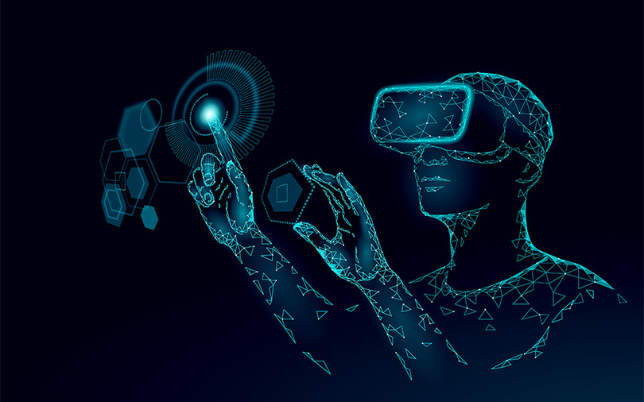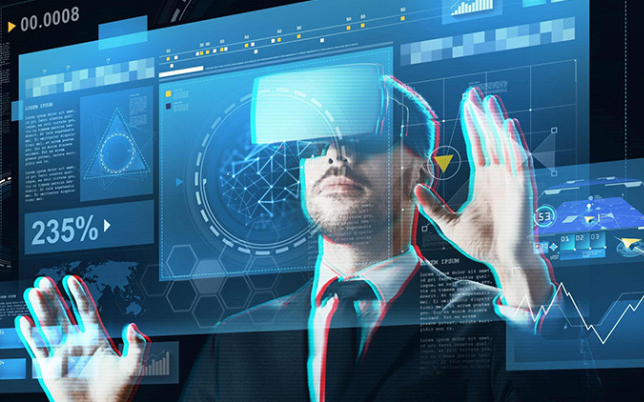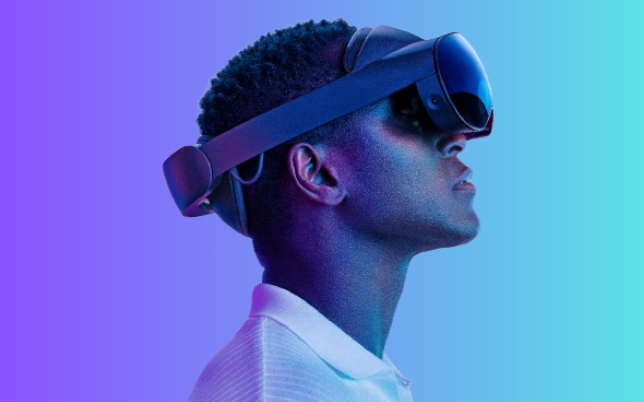The metaverse is rapidly transforming the way we interact with the digital world. In this article, we explore the basics of the metaverse, its key features, and how it is reshaping industries, from education to entertainment. Learn what the metaverse is, its potential, and how it will impact our future interactions in virtual environments. Whether you’re new to the concept or looking to expand your knowledge, this guide provides an essential overview to get you started.
Understanding the Metaverse
The concept of the Metaverse has been gaining traction in recent years, especially with the advancements in technology. It is essential to understand what the Metaverse is, its origins, evolution, and key characteristics.

Definition of the Metaverse
The Metaverse can be defined as a collective virtual shared space, created by the convergence of virtually enhanced physical reality and physically persistent virtual reality. In simpler terms, it is a digital universe that encompasses virtual reality, augmented reality, and the internet.
Origins and Evolution of the Metaverse Concept
The term “Metaverse” was coined by Neal Stephenson in his 1992 science fiction novel “Snow Crash.” The concept has since evolved from a fictional idea to a potential reality, with the development of various technologies that enable the creation of immersive digital environments.
Key Characteristics of the Metaverse
The Metaverse is characterized by its persistent nature, allowing users to create, own, and monetize digital assets within the virtual space. It also enables real-time interaction and collaboration, blurring the lines between the physical and digital worlds.
The Technology Behind the Metaverse
The Metaverse relies on several key technologies to create immersive and interactive virtual experiences.
Virtual Reality (VR) and Augmented Reality (AR) Technologies
VR and AR technologies play a crucial role in the development of the Metaverse, providing immersive experiences and overlaying digital content onto the physical world.
Blockchain and Cryptocurrency in the Metaverse
Blockchain technology and cryptocurrency are integral to the Metaverse, enabling secure transactions, ownership of digital assets, and the creation of decentralized virtual economies.
Artificial Intelligence (AI) in the Metaverse
AI powers the intelligent behaviors and interactions within the Metaverse, creating realistic and responsive virtual environments.

Applications and Industries in the Metaverse
The Metaverse has the potential to impact various industries and applications, including:
Gaming and Entertainment
The gaming industry is at the forefront of Metaverse development, creating immersive and interactive virtual worlds for players to explore and engage with.
Social Interaction and Virtual Communities
The Metaverse provides a platform for social interaction, enabling users to connect, communicate, and collaborate in virtual spaces.
Education and Training
The Metaverse offers new opportunities for immersive and interactive learning experiences, allowing for realistic simulations and virtual training environments.
Business and Commerce
Businesses can leverage the Metaverse for virtual conferences, product demonstrations, and e-commerce, creating new avenues for customer engagement and interaction.
Opportunities and Challenges of the Metaverse
The Metaverse presents numerous opportunities for innovation and creativity, but it also brings forth potential social and ethical implications, as well as security and privacy concerns.
Opportunities for Innovation and Creativity
The Metaverse provides a blank canvas for creativity, allowing individuals and businesses to explore new forms of expression and interaction.
Potential Social and Ethical Implications
As the lines between the physical and digital worlds blur, the Metaverse raises questions about identity, ownership, and the impact of virtual experiences on real-life behavior.
Security and Privacy Concerns in the Metaverse
The Metaverse introduces new challenges in terms of security and privacy, as users engage in virtual transactions and interactions, raising concerns about data protection and digital rights.

Navigating the Metaverse
Accessing and navigating the Metaverse involves understanding how to interact with virtual platforms, create and customize virtual identities, and engage with others in the virtual space.
Accessing the Metaverse Platforms and Environments
Users can access the Metaverse through various platforms, including VR headsets, augmented reality devices, and traditional computing devices.
Creating and Customizing Your Virtual Presence
In the Metaverse, users can create digital avatars, customize their virtual identities, and own digital assets within the virtual space.
Interacting with Others in the Metaverse
Interactions in the Metaverse can range from social gatherings and virtual events to collaborative workspaces and immersive gaming experiences.
The Future of the Metaverse
The Metaverse is poised for significant growth and impact on society and culture, with potential developments and advancements in Metaverse technology shaping the future of digital experiences.
Predictions and Forecasts for the Growth of the Metaverse
Industry experts predict that the Metaverse will continue to expand, offering new opportunities for entertainment, commerce, and social interaction.
Impact of the Metaverse on Society and Culture
The Metaverse has the potential to reshape how we interact, communicate, and conduct business, influencing societal norms and cultural practices.
Potential Developments and Advancements in Metaverse Technology
Advancements in VR, AR, AI, and blockchain technology will drive the evolution of the Metaverse, creating more immersive and interactive virtual experiences.
In conclusion, the Metaverse represents a new frontier in digital experiences, offering a blend of virtual and physical realities with vast potential for innovation and impact across various industries and societal domains. As the Metaverse continues to evolve, it is crucial to consider the opportunities and challenges it presents, as well as the implications for society and culture. Navigating the Metaverse requires an understanding of the underlying technologies and the ability to adapt to the virtual environments, paving the way for a future where the boundaries between the real and virtual worlds become increasingly blurred.
